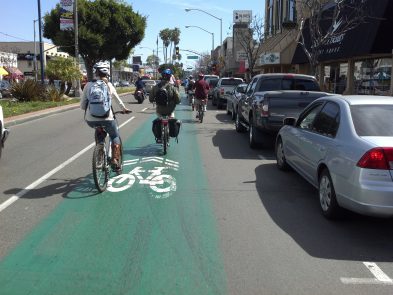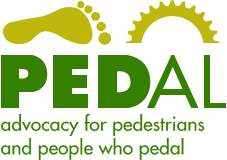
I’m still pondering the Newport Beach deaths of two lady bicyclistsin 24 hours a little less than two weeks ago.
I’m haunted by the policy priorities everywhere that enabled them to be placed at risk–and continue to place more bicyclists and pedestrians in deadly jeopardy.
I’m stung, despite those horrific sacrifices, by comments from another public works director who recently said, “How do we deal with our limited rights of way and try to provide the best level of service we can to our folks?”
Yo soy un alma en pena.
But what if there was a way to cut your in-town, 5-mile, 15-20-minute commute to 6 minutes? What if you never had to stop at a red light? What if you could simultaneously reduce collisions on a certain stretch of roadway by 40 percent and injury accidents by 80 percent? Would you support your town’s efforts to change the intersection design to achieve those results?
Carmel, Indiana, has done just that. How? By converting intersection stop signs and traffic signals to roundabouts–57 of them–giving Carmel the greatest number of roundabouts than any city its size (82,000) in the nation. Roundabouts are recommended by the Federal Highway Administration and the California Department of Transportation as what’s called a “proven safety countermeasure.”
With over 400 miles of city roadways, Carmel only has 38 traffic signals. Located just north of Indianapolis in Hamilton County,Carmel is a dynamic edge city with award-winning schools, thriving businesses and family-oriented neighborhoods. The city is committed to preserving its vitality through controlled expansion and prudent planning.
Carmel’s leadership values people over cars, and in so doing both excel: cars move more efficiently and people travel more safely.
There are quite a few California cities that should take note. San Clemente is making strides in that direction.
But another Pacific Coast Bike Route town, Newport Beach, home to the Pacific Coast Slaughterway–a place where bicyclists are routinely struck and often killed by cars–needs to take note at the highest level.
We have a policy crisis. We also have a leadership crisis.
We need to think differently or innocent people will continue to die.
In Newport Beach, it’s not about money. It’s about courage. Leadership needs to be willing to change its priorities. Level of Service policies must be redefined so that moving people as safely as possible is more important than reducing vehicle delay, more important than inducing cars to move as fast as possible, even if roadways go from 60 to 35.
But it’s not just Newport Beach. Leadership everywhere needs to realize that with roundabouts and other proven traffic calming tools, drivers may even save time by slowing down.
